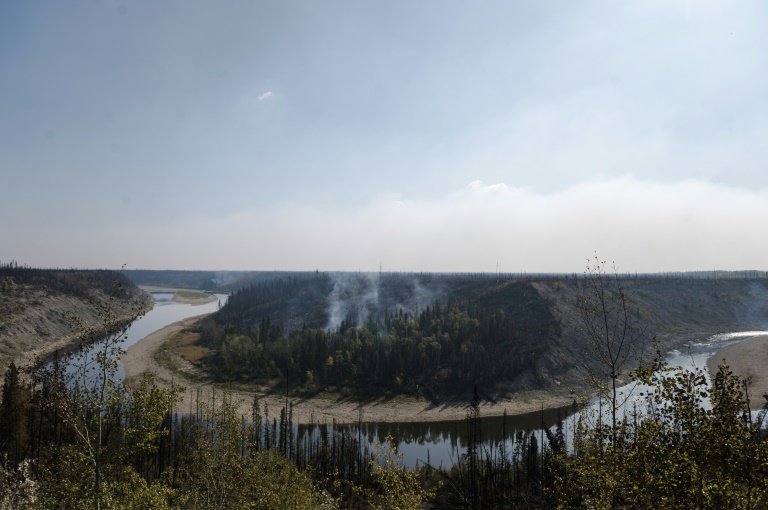The Arctic saw its warmest ever summer in 2023, the result of accelerating human-caused climate change that is pushing ecosystems and the people that depend on them into uncharted territory, according to an official report Tuesday.
Average summer surface air temperature from the months of July-September was 43 degrees Fahrenheit (6.4 Celsius), the highest since records began in 1900.
The Arctic is warming roughly four times faster than the rest of the planet, primarily as a result of a vicious cycle of sea ice loss in a phenomenon called Arctic Amplification.
“The overriding message from this year’s report card is that the time for action is now,” National Oceanic and Atmospheric Administration administrator Rick Spinrad said in a statement.
“We as a nation and global community must dramatically reduce greenhouse gas emissions that are driving these changes.”
Average summer temperatures have been rising 0.31 F (0.17 C) per decade.
Overall, it was the Arctic’s sixth warmest year, at 20 degrees Fahrenheit (-7 C).
Now in its 18th year, the NOAA Arctic Report Card is the work of 82 authors across 13 countries.
Observations from this year’s report emphasize an ongoing trend line of warming sea and air temperatures, decreasing snow cover, diminishing sea ice, and continued melting of the Greenland Ice Sheet.
But the year also brought high impact events that had the “clear signature” of climate change.
While the Arctic is growing wetter, there are distinct regional and seasonal differences, co-author Tom Ballinger of the University of Alaska Fairbanks told reporters.
“For example, a wet winter characterized portions of Alaska, though a dry spring was observed over western Eurasia and northern Canada was impacted by a dry summer,” he said.
Warm, dry summer conditions across northern Canada, combined with early snowmelt contributed to the Canadian Arctic experiencing its worst wildfire season on record, causing the evacuation of 20,000 people from the town of Yellowknife in August.
Also in August, a glacial lake near Juneau, Alaska burst through its dam, causing massive flooding and property damage along the Mendenhall River, as a result of two decades of glacial thinning.
The long term warming trend has a variety of uneven impacts across ecosystems and food webs that people rely upon.
For example, sockeye salmon reached a record-high abundance in Bristol Bay, Alaska in the years 2021 and 2022.
The species, a staple of commercial fisheries, has thrived under warmer waters. Increased plankton abundance has allowed juveniles to grow faster in lakes and increase their odds of survival when they reach the ocean.
But record high catches have flooded markets and depressed wholesale prices to their lowest levels in decades, said co-author Daniel Schindler of University of Washington
On the other hand, chinook and chum salmon that Indigenous communities rely on have drastically declined following heat waves that negatively impact their growth rates, contributing to smaller adults, for reasons that aren’t fully understood.
“Livelihoods, nutrition and cultures at the subsistence communities have all been heavily impacted,” said Schindler.
Another chapter of the report examines subsea permafrost, a field that is relatively little known, even among scientists — though potentially an important source of greenhouse gas emissions.
As the world emerged from the last ice age, rising ocean waters in the Arctic covered permafrost, transforming it into subsea permafrost over thousands of years.
“An estimated 2.5 million km2 of subsea permafrost remains today, but it continues to thaw due to the original ocean inundation event and more recent, rapid Arctic warming,” the report said.
AFP






